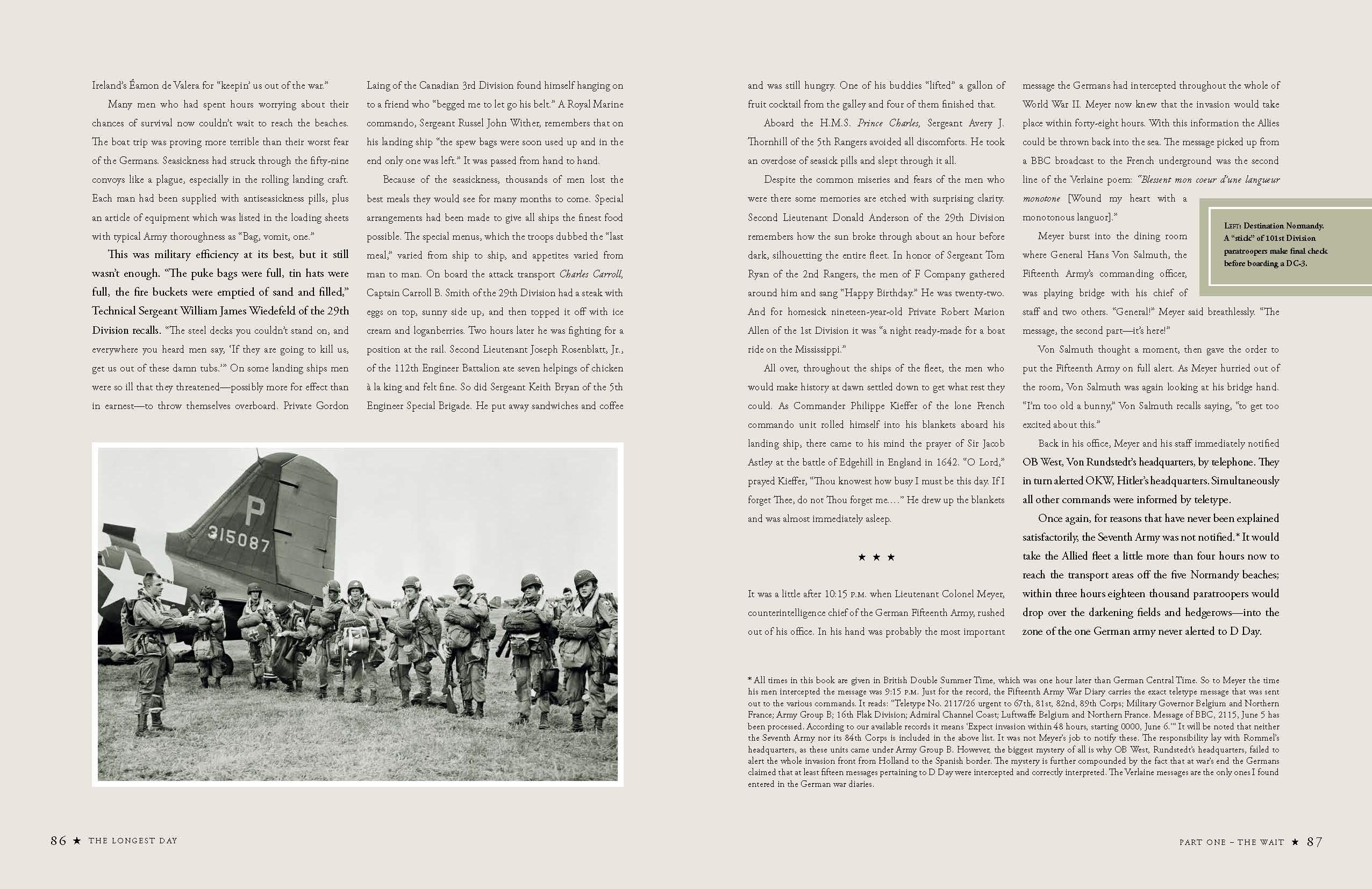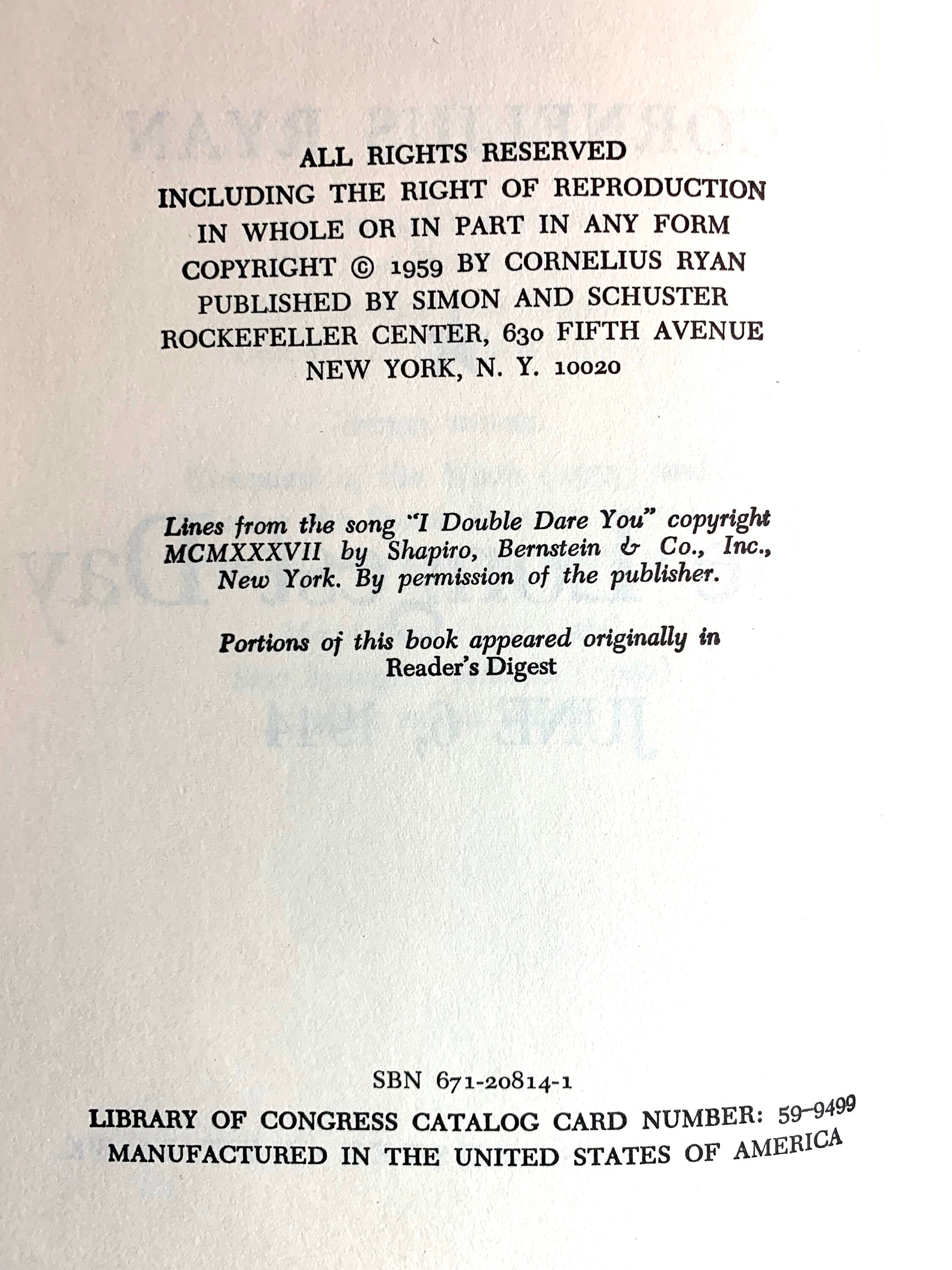
His research has obviously been meticulous, but this never causes his prose to labour and he humanises the battle on both sides without trivialising it. Given the early date of "The Longest Day" it is an enormous credit to Cornelius Ryan that he has avoided both partisanship and triumphalism in his account.


Said another, “Get down, you mad bugger.In the two generations that have passed since the end of the Second World War historians have acquired the distance and balance from those terrible events necessary to writing good history. The men streamed past him, and mingling with the whine of bullets and the screams of shells came the wild skirl of the pipes as Millin now played “The Road to the Isles.” “That’s the stuff, Jock,” yelled a commando. At the water’s edge, oblivious to the gunfire, he halted and, parading up and down along the beach, piped the commandos ashore. As Millin floundered toward the shore, Lovat shouted at him, “Give us ‘Highland Laddie,’ man!” Waist- deep in the water, Millin put the mouthpiece to his lips and splashed on through the surf, the pipes keening crazily. He could see smoke piling up from the beach ahead and hear the crump of exploding mortar shells. He slammed down his fist again and again on Baxter’s helmet and roared, “Bash on! Bash on!”Īs the commandos touched down on Sword, Lord Lovat’s piper, William Millin, plunged off his landing craft into water up to his armpits. Bell yelled, “Baxter, wind up that seat so you can see where you’re going!” Baxter shouted back, “Not bloody likely! I can see!” Then, as they swept up the beach, the sergeant, caught up in the excitement of the moment, resorted to the very thing that had begun the feud in the first place. Sitting exposed on the raised seat above him was his bitter enemy, Sergeant “Dinger” Bell, with whom Baxter had been fighting for months. Off Sword, Private Hubert Victor Baxter of the British 3rd Division revved up his Bren gun carrier and, peering over the top of the armored plating, plunged into the water. “Tryin’ to drown me before I even getup on the beach!” As the men ran out, McQuaid yelled at the shell- smoked shore line, “Come out, ye bastards, and fight us now!” Then he disappeared under water. “De Lacy,” said McQuaid, staring hard at the Englishmen all around them, “don’t you think now that some of these boys seem a wee bit timid?” As the beaches neared, De Lacy called out to his men, “All right, now! Here we go! At the run!” The LST ground to a halt.

Two Irish sergeants, James Percival “Paddy” de Lacy, who had toasted De Valera hours before for “keepin’ us out of the war,” and his side- kick, Paddy McQuaid, stood at the ramps of an LST and, fortified by good Royal Navy rum, solemnly contemplated the troops. Some men could hardly wait for the fighting to begin.


 0 kommentar(er)
0 kommentar(er)
